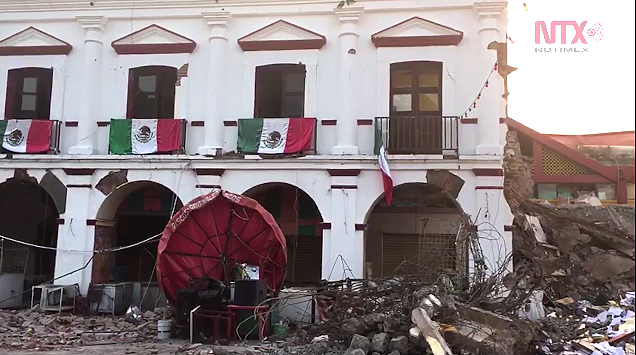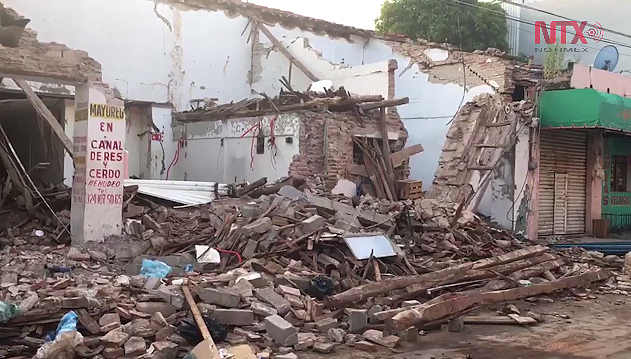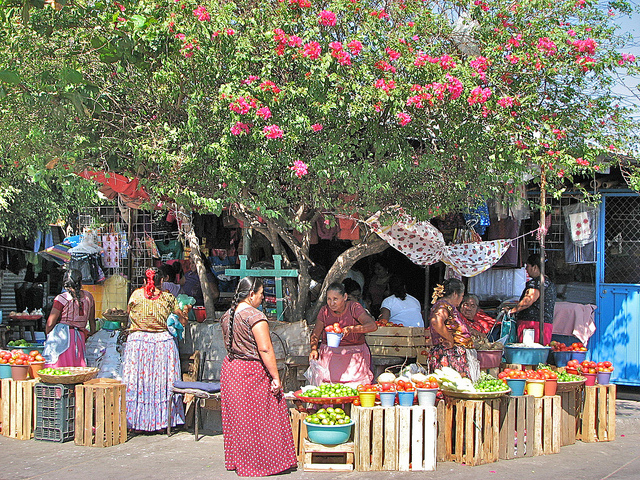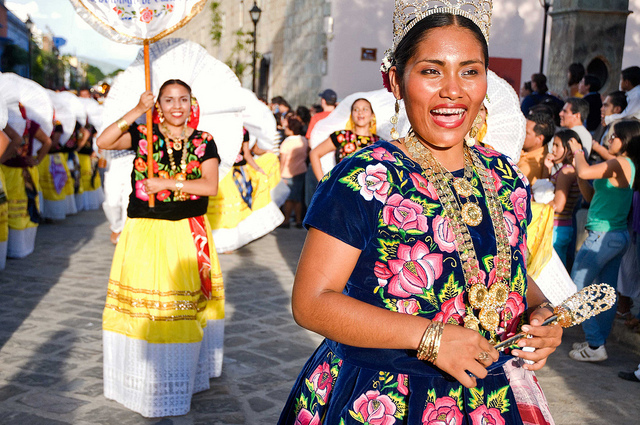The massive earthquake that rocked southern Mexico shortly before midnight two weeks ago damaged or destroyed thousands of buildings and killed scores of people in the Zapotec city of Juchitán de Zaragoza. The magnitude 8.1 or 8.2 quake was located about 150 miles southeast of the city in the Gulf of Tehuantepec, off the coast of Chiapas.

Chaos reigned in the city of nearly 100,000 as people scrambled to try and get outside before the buildings collapsed. In the frantic early hours of September 8, people struggled to find family members trapped in the rubble of their homes. Early reports the next morning indicated that parts of the beautiful Municipal Building as well as the city’s central market and hospital were destroyed.
Once the aftershocks began to ease off, the international media flocked in to gather stories from the survivors, in part because of the scope of the tragedy and in part due to the prominence of the city itself. Juchitán has been covered extensively in the news over the years due to its very supportive attitudes toward women and toward individuals called “muxes,” transgendered people who are born as males but are designated as females and raised to be a third gender when they grow up.

The article in the VOA News, like several others, concentrated on the stories of the women and the muxes. Peregrina Vera, a 26-year old muxe, told the press (her stories were quoted in several news reports) that as soon as the earthquake started shaking their house, she carried her elderly mother out of the building. Then she and her brother stared searching for their aunt, who was trapped in the rubble.
She heard shouts for help and pulled her grandmother to safety. When the reporter interviewed her, she was sitting in a patio just beyond the collapsed walls of the house. A couple aggressive pet ducks snapped at the visitors. The reporter found out that there is a muxe in almost all Juchitán families. They are widely accepted in the local Zapotec society, especially since they often stay at home and care for their aging mothers when their siblings leave.

The downtown market, according to the VOA News, severely damaged by the quake, had been the center of power for the local Zapotec women for over a hundred years. It will have to be leveled. Irma Lopez, a seller of traditional clothing for indigenous people, expressed pride in the fact that 80 percent of the vendors in the market were women. She said that the collapse of the market will be an especially hard blow for the women of the city. “We are the ones who have lost the most,” she said as she waited next to the ruins for relatives to help her recover accessible stocks of her remaining merchandise.
Felina Santiago, the muxe owner of a beauty shop, told the reporter outside her badly damaged home that in addition to dominating the sales of goods in the market place, the Zapotec women are normally in charge of family finances. “Many say Juchitán is the ultimate matriarchy. It’s a city of women who fight, who work hard,” she said. She added, just as another structure on her block loudly collapsed, that the women were now, more than ever, determined to get to work and get the city back on its feet.

A 56-year old domestic worker in the city’s Seventh Division, Margarita Lopez, expressed similar opinions. The reporter interviewed her while she stood in a crowd of women waiting for a promised delivery of food. “Yes, we have our husbands, and we don’t leave them behind,” she said. “But we women matter more. We take decisions, more than the men do.” The other women in the crowd nodded their heads in agreement. Although in Mexico as a whole men do not normally help with household chores such as washing dishes or cooking, in Juchitán husbands do help with those tasks.
A male surgeon, Ovidio Pineda, said that men in the city find the gender equality to be natural. Men and women share responsibilities and cooperate in making decisions, he said.
The VOA interviewed Marta Toledo, the owner of a bar located in a 200-year-old building that was destroyed by the quake, killing three clients. She said the earthquake would not level the spirit of the city. She was interrupted by another aftershock that prompted her and others to run for their lives. Then, standing near the rubble that used to be her business, she said, “Women stand out here, in terms of work and intelligence and experience.”
She summed up what all the women and muxes were saying: “We have to rebuild and rise like the phoenix.” She started singing in Zapotec a song with the chorus lines, “I want to shout, I am alive!” Other news stories from Juchitán and nearby communities, such as those in ABC News, and Telesur TV, reported similar impressions and quoted from the same interviewees in several cases. Responses to the earthquake make it clear that the women and muxes view themselves as the backbone of Zapotec society in the southern part of Oaxaca.